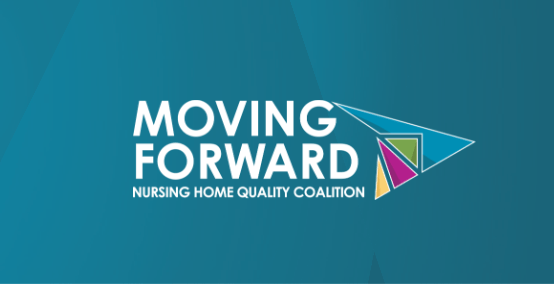In 2022, the Moving Forward Nursing Home Quality Coalition asked Marc Cohen to co-lead one of its seven committees created as part of a two-year national initiative to improve nursing home quality. Cohen, co-director of the LeadingAge LTSS Center @UMass Boston, co-chairs the Financing System committee with David Grabowski, professor of health care policy at Harvard Medical School.
One year later, their committee has released an action plan that focuses on promoting policies to encourage nursing homes to improve their physical plants to make them feel less institutional and more like households. “Nursing homes are people’s homes. The buildings themselves should achieve the comfort, safety, privacy and dignity embodied in that word,” the committee’s plan says. Theirs is one of nine action plans released by the coalition in July 2023.
“We were asked to make recommendations that could be acted on in the next two years, not put up on a shelf,” Cohen says. “The Moving Forward Coalition grew out of a National Academies of Sciences, Engineering and Medicine (NASEM) 2022 report, basically finding that the nursing home industry urgently needs to make major changes.”
The coalition is funded by The John A. Hartford Foundation and draws on leadership from national organizations and subject matter experts as well as a diverse group of nursing home residents and care partners, family members, and providers. The coalition aims to accomplish its vision—in which “every nursing home will be a community in which lives are nurtured, residents are empowered, and where people want to work”–through “vital changes in policy and practice through the power of bringing diverse voices together now.”
Three goals shared in the plan, “Financing Household Models & Physical Plant Improvements, include:
- Support key stakeholders willing to take steps to promote and incentivize household model conversion and expansion through state and federal demonstrations, financial and regulatory incentives, and other public and private sector activities.
- Convene a roundtable to discuss strategies to promote additional household-model nursing homes.
- Identify and circulate specific recommended changes to the U.S. Department of Housing and Urban Development (HUD)’s Section 232 (a mortgage insurance program for residential care facilities) rules, regulations and/or guidelines intended to incentivize physical plant improvements and innovations.
“We want to encourage collaborative approaches,” Cohen says. “We especially focused on HUD’s Section 232 program, which insured a majority of the $4.9 billion in loans received by nursing homes in 2021. Current regulations and guidelines do not provide incentives to drive physical plant improvements, and we want to change that. The coalition sees an opportunity to make a powerful, near-term impact by engaging with HUD on the potential of Section 232 to be a key driver of nursing home transformation.”


Leave a Reply